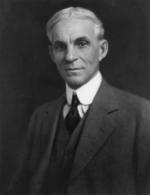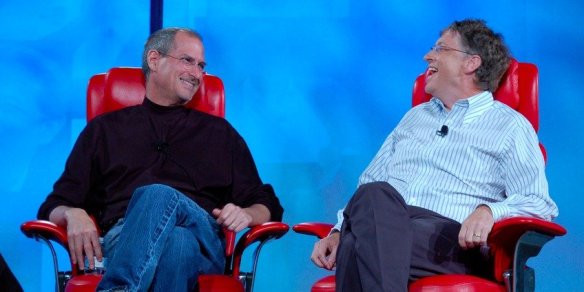
Henry Ford
Leftists often claim that successful businesses owe society for all the money they have made. Those capitalist bastards took all our money and gave us nothing in return, right? This, of course, makes absolutely no sense. How did they get that money if not by selling us their products which we wanted? If anything, we got the better deal: a physical good or service in exchange for some paper (or an electronic ledger record these days).
Indeed, Henry Ford became a multimillionaire and was able to use his riches in ways he sought fit. But to get there, he provided millions with automobiles. Whether personally owned, or involved in transportation of goods and passengers, he made life easier for all of those people, who could then be much more efficient and productive. If anything, society owes him some of its billions in benefits for the paltry millions he earned.
And then the computer, pioneered by Bill Gates and Steve Jobs, both billionaires (Jobs prior to his death), has not only created a multitrillion dollar complex of industries, it has vastly improved efficiency and innovation. Thanks to them, I am able to write this article now, hit a few buttons, and get it to thousands of people. It was not too long ago that I would have had to write it up, or maybe use a typewriter, and then have it sent off to be printed at my own expense for uncertain distribution, or to a publisher for hopeful publication.

Steve Jobs and Bill Gates
Do any of these gentlemen owe me roads and schools and healthcare? In a sense, they have already provided that with their product. Cars and computers make all three of those functions better than ever in history, computers in particular. And yet, many on the left still claim that entrepreneurs and businessmen owe it to society for all the money they have accumulated. This is nothing but jealousy and greed, the very thing the left accuses capitalists of. They have more stuff than you because they were successful at helping people via the market. That’s not fair! But it is forgotten that in exchange for taking some money from you and me, they have vastly improved the lives of us as consumers and the millions involved in the production of their goods.
From Jewish Libertarians, here.
